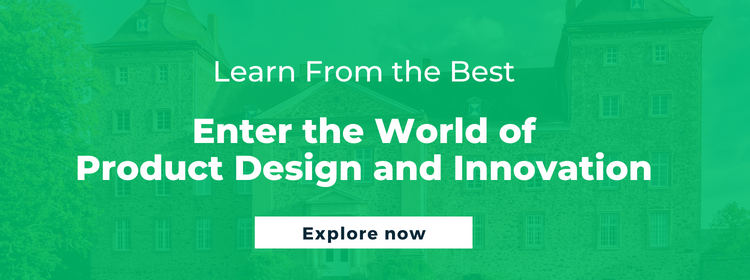How to Become a CPO: Best Skills and Qualifications for Success

- What is the Role of a Chief Product Officer (CPO) in an Organization?
- What Qualifications and Skills are Required to Become a CPO?
- How Can One Transition From a Product Enthusiast to a CPO?
- What are the Typical Responsibilities of a CPO?
- Boost Your Product Design and Management Career With Emeritus
In the ever-evolving landscape of modern corporate leadership, one role has taken center stage in the pursuit of product excellence and organizational success: that of the Chief Product Officer (CPO). They are the key players tasked with steering the organization’s product portfolios to greater heights. Moreover, what was once a conventional product management role has now evolved into a multifaceted, strategic leadership position with significant influence.
Given the growing impact of the CPO in the corporate world, it is crucial for both aspiring CPOs and company leaders to understand the intricacies of this transformative role. This article provides a comprehensive guide on everything you need to know about the chief product officer and how to transition from a product enthusiast to a CPO.
In this blog, we will cover the following topics:
- What is the Role of a Chief Product Officer (CPO) in an Organization?
- What Qualifications and Skills are Required to Become a CPO?
- How Can One Transition From a Product Enthusiast to a CPO?
- What are the Typical Responsibilities of a CPO?
- Boost Your Product Design and Management Career With Emeritus
What is the Role of a Chief Product Officer (CPO) in an Organization?
 A Chief Product Officer (CPO) assumes a C-level executive role within an organization and is also referred to as the “head of product” or “vice president of product”. Their role encompasses overseeing all product-related activities and executing a product vision that aligns with the company’s overall business strategy. They are tasked with developing products that satisfy user needs and seamlessly align with the organization’s overarching goals and vision. Additionally, a CPO bridges product innovation, customer experience, and financial performance, ultimately enabling companies to deliver value more rapidly and efficiently.
A Chief Product Officer (CPO) assumes a C-level executive role within an organization and is also referred to as the “head of product” or “vice president of product”. Their role encompasses overseeing all product-related activities and executing a product vision that aligns with the company’s overall business strategy. They are tasked with developing products that satisfy user needs and seamlessly align with the organization’s overarching goals and vision. Additionally, a CPO bridges product innovation, customer experience, and financial performance, ultimately enabling companies to deliver value more rapidly and efficiently.
ALSO READ: The Product Manager Career Path: A Roadmap to Success
What Qualifications and Skills are Required to Become a CPO?
A CPO should possess a Bachelor’s Degree in Product Marketing, Business, IT, Product Management, Computer Science, or a related field. Additionally, obtaining a master’s or doctoral degree in a related field can significantly enhance their qualifications for this leadership role, deepening their knowledge and expertise in the relevant domain.
Furthermore, as the CPO is a C-suite position, it requires 10 to 15 years of experience working in a product-related field. This practical experience in product management also equips CPOs with a deep understanding of product-related expertise spanning product lifecycle, product strategy, product innovation, the product roadmap, customer needs, market dynamics, and the intricacies of leading product-focused teams.
In addition to academic and experiential qualifications, a CPO requires diverse skills to excel in this role. These include:
- Exceptional leadership and supervisory abilities
- Strong written and verbal communication skills
- In-depth knowledge of customer requirements and engagement
- Proficiency in interpreting and tracking data metrics
- Ability to solve problems and make complex decisions under stressful circumstances
- Solid understanding of product analytics
- Capability to make strategic decisions based on product-related information
ALSO READ: What are the Six Stages of Product Development? Why are They Important?
How Can One Transition From a Product Enthusiast to a CPO?
Now that you know what a CPO does and the qualifications required for this role, here are some steps to help you advance your career:
1. Obtain the Required Education
As mentioned above, a CPO requires a solid educational background in product-related fields. In addition to a bachelor’s degree, professionals should also consider obtaining a master’s and doctoral degrees to qualify for this executive role.
2. Gain the Necessary Experience
The CPO is a C-suite executive position that typically requires a decade or more of experience. Thus, look for diverse work opportunities to enhance leadership and product innovation skills, and take on more responsibilities to prepare for this position.
3. Develop Essential Skills
Furthermore, as the CPO is a high-responsibility career that demands exceptional skills, consider taking leadership, product design, and innovation courses to advance knowledge and prepare for the role.
4. Find a Mentor
A good mentor can significantly impact your career by offering valuable insights, addressing queries, enhancing knowledge, and kick-starting that corporate climb. Therefore, look out for an industry leader who has experience and expertise in the domain.
ALSO READ: Best Product Management Tools: Make the Right Choice for Your Business
What are the Typical Responsibilities of a CPO?
 The responsibilities of a chief product officer can vary depending on the specific role, but in general, they perform a wide range of jobs. Let’s take a look at the 10 key responsibilities of a CPO:
The responsibilities of a chief product officer can vary depending on the specific role, but in general, they perform a wide range of jobs. Let’s take a look at the 10 key responsibilities of a CPO:
1. Leading Product Management Teams
The CPO is typically responsible for overseeing and leading the product management team. This also includes setting the team’s direction, goals, and priorities.
2. Defining Product Vision and Strategies
They are responsible for formulating and executing the company’s product vision and strategic initiatives, ensuring alignment with overall business objectives.
3. Overseeing Product Development
From conceptualization to launch, the CPO oversees the entire product lifecycle, ensuring timely and quality delivery.
4. Managing Product Portfolios and Teams
CPOs manage product portfolios and the teams responsible for product creation, fostering collaboration and innovation.
5. Ensuring Seamless Product Delivery
They coordinate cross-functional efforts to ensure products are delivered on time and meet quality standards.
6. Aligning Product Features With Company Goals
CPOs balance customer needs with business objectives, ensuring product features align with the company’s overarching goals.
7. Data-Driven Decision-Making
They leverage data and market metrics to make informed decisions, continually analyzing product performance and market trends.
8. Driving Business Growth Through Products
CPOs play a pivotal role in fostering business growth by driving effective product development, product roadmap, product strategy, team management, marketing, and data analysis.
9. Executive Communication
They communicate directly with the CEO and other department heads, providing updates and recommendations and also addressing concerns related to product development.
10. Confidential Information Management
Finally, given their role at the intersection of product development and company strategy, CPOs are also entrusted with sensitive information about both the products and teams, and they must handle this information with discretion.
ALSO READ: Top 10 Questions Asked in a Chief Product Officer Interview
Boost Your Product Design and Management Career With Emeritus
In conclusion, the role of a CPO is instrumental in steering an organization’s product strategy toward success by leveraging informed decision-making and effective leadership. Furthermore, aspiring professionals aiming to excel in this role should prioritize skill development. Therefore, for an effective way to enhance product management skills, consider exploring product design and innovation courses offered by Emeritus in collaboration with some of the world’s leading universities.
Write to us at content@emeritus.org
















